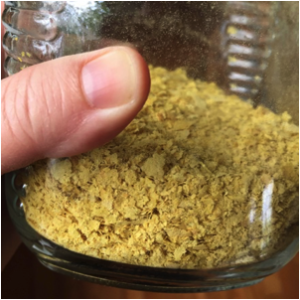 People frighten and confuse me.
People frighten and confuse me.
It’s not their fault. Well, sometimes it is, but that’s a topic for a different day. Today, I’d like to take you on a journey into the awkward glory of social anxiety. If you don’t suffer from this annoying malady, this article may not be for you, though I’d appreciate it if you’d keep reading anyway, because my second book just came out and heaven knows I need the exposure.
Most people don’t peg me for socially anxious, and I don’t blame them for missing it. I’m chatty enough with people I know, and I’m always the first to throw out an inappropriate comment. Indeed, in groups of more than three but fewer than seven, with at least two friends present, I can be absolutely effervescent. You might even say that I’m the life of a very limited range of small parties.
But if you get me in a crowd and tell me to mingle, you had better be ready for a nervous breakdown.
Have someone you need me to introduce myself to? Sorry, they look really busy sitting alone at that table, quietly refolding their napkin. Maybe later, when they’re not so preoccupied.
Got a small favor I should ask of a friend? That feels too much like imposing.
Trying to make me the center of attention? Then the center of attention is going to be a cloud of dust where I was just standing.
Want me to maintain more than a tenth of a second of nervous eye contact with you? Whoa, save something for marriage there, Speedy McTooFast.
Even with the wonderful and supportive friends that I’m lucky enough to have, I always manage to sabotage any attempt at helping me. “You looked like you wanted to be alone,” they’ll say, the day after a party. Inevitably, it’ll be a party that I spent standing in the corner, faking Barkleyesque interest in a potted fern, paralyzed, afraid to approach any of the clusters of conversation.
The real problem is that my own brain conspires against me, particularly at gatherings of other writers. “No, they’re too good for you,” it says. “One of them has a Hugo. What the hell do you have?” If I intentionally seek out a less-intimidating group, I still find ways to scare myself away. “Oh, think you’d fit in better with them? Didn’t you say a few words to two of them an hour ago? They’re probably exhausted with you after that.” Even when my wonderful friends try to help, my traitorous brain sabotages their efforts. “What, them?” it asks. “Those friends who specifically told you to join them anytime, that you were always welcome, and specifically mentioned that they were making it their mission to help you socialize? Well, that just proves they’re tired of your nonsense, doesn’t it? Better duck out before you ruin their night.” And then my brain cackles evilly as I make my way to the exit.
If this seems familiar to you, don’t despair, because there is something you can do about it: go see a psychiatrist.
Sorry, were you expecting a treatise on coping mechanisms? A weird old trick, perhaps? Yeah well, the weird old trick is to see a psychiatrist already. Because, if your social anxiety is so bad that the above is familiar, then any coping mechanisms you possess are probably being employed as excuses to not get the help you need.
If, on the other hand, the above feels like a gross exaggeration of your social anxiety, then perhaps I do have a handful of weird old tips for you.
Perhaps the most important thing is to have someone on your side. I am extremely lucky to have talented and fearless people who want me to succeed, and it has helped immeasurably. Now, this may seem like a bit of a paradox. Social anxiety can make recruiting your friends not just a Herculean task, but a mild imposition on them, and therefore an impossible request. “How can I make such a request,” you say, “as worthless and unworthy as I am? My friend surely has better things to do””like staring into space or streaming the complete run of She’s the Sheriff. I can’t let them waste their time on me.”
To get over this, the first thing you have to do is acknowledge that your brain is lying to you. I mean, Suzanne Somers is great and all, but that show just doesn’t hold up. Good acting can only go so far in saving such a horrible premise.
Oh, and your brain is also lying about your worthlessness. You are worthy and deserving of the help of others. But seriously, who the hell thought that show was a good idea?
The second most important thing is to force yourself to do the things you dread. Stand in sight of your friends at that social event. Believe in their sincerity when they wave you over. Promise yourself that you’ll say hello to those people you talked to earlier. If you must stare at your feet, put one in front of the other until you find yourself in front of that guy with the Hugo and you have no choice but to shake his hand. You needn’t be afraid. He probably won it in an off year, anyway. It’s not like he’s Ted Chiang, or something. I mean, unless he really is Ted Chiang, in which case you should probably just run.
The point is, throw yourself into the very situations you’re most afraid of, to teach yourself that they will not end in tears, chaos, and disaster. Outflank your lying brain by maneuvering yourself into social obligations you can’t back out of. When there’s nowhere to go but forward, that’s where you’ll go, and you’ll learn the terrain along the way. And when you screw it up, don’t get mad at yourself. Treat it as a training exercise instead.
Oh, and if you happen to see me at a convention? Come on over and say hello. I don’t bite, except when cornered.
 Robyn Bennis is a writer and biologist living in Madison, Wisconsin. The latest book in her Signal Airship series is By Fire Above, which Publishers Weekly calls an “introspective study of the morality of war in a fantastical steampunk setting.” She has run from Ted Chiang on at least one occasion.
Robyn Bennis is a writer and biologist living in Madison, Wisconsin. The latest book in her Signal Airship series is By Fire Above, which Publishers Weekly calls an “introspective study of the morality of war in a fantastical steampunk setting.” She has run from Ted Chiang on at least one occasion.
Follow her on Twitter. Find her website here.
Want to write your own guest post? Here’s the guidelines.
Enjoy this writing advice and want more content like it? Check out the classes Cat gives via the Rambo Academy for Wayward Writers, which offers both on-demand and live online writing classes for fantasy and science fiction writers from Cat and other authors, including Ann Leckie, Seanan McGuire, Fran Wilde and other talents! All classes include three free slots.










 Author: E.D.E. Bell was born in the year of the fire dragon during a Cleveland blizzard. With an MSE in Electrical Engineering from the University of Michigan, three wonderful children, and nearly two decades in Northern Virginia and Southwest Ohio developing technical intelligence strategy, she now applies her magic to the creation of
Author: E.D.E. Bell was born in the year of the fire dragon during a Cleveland blizzard. With an MSE in Electrical Engineering from the University of Michigan, three wonderful children, and nearly two decades in Northern Virginia and Southwest Ohio developing technical intelligence strategy, she now applies her magic to the creation of 





2 Responses
I love you Robyn… always have, always will!!! Don’t forget I’m part of your crazy familia tribe!!â£ï¸â£ï¸â£ï¸~Amy~